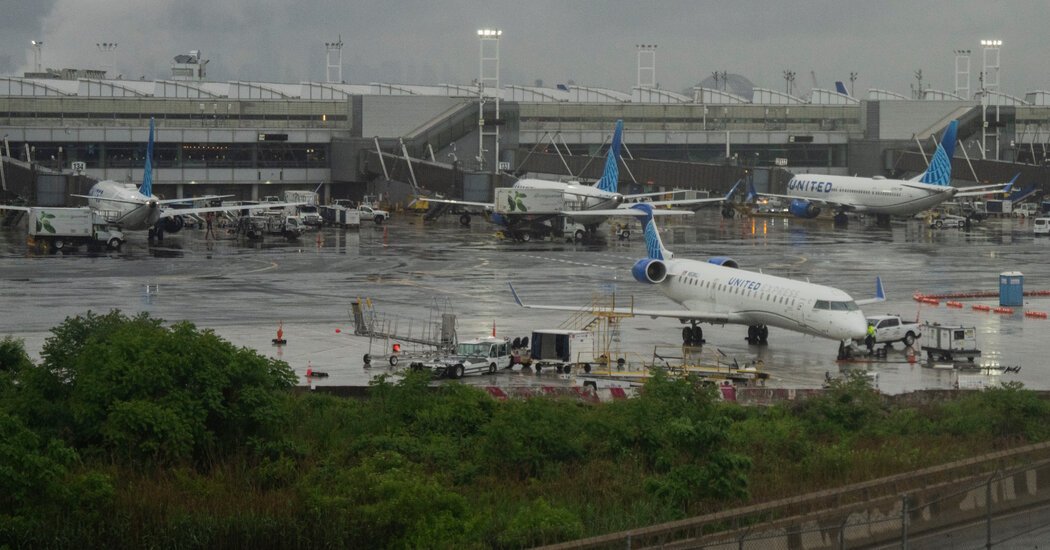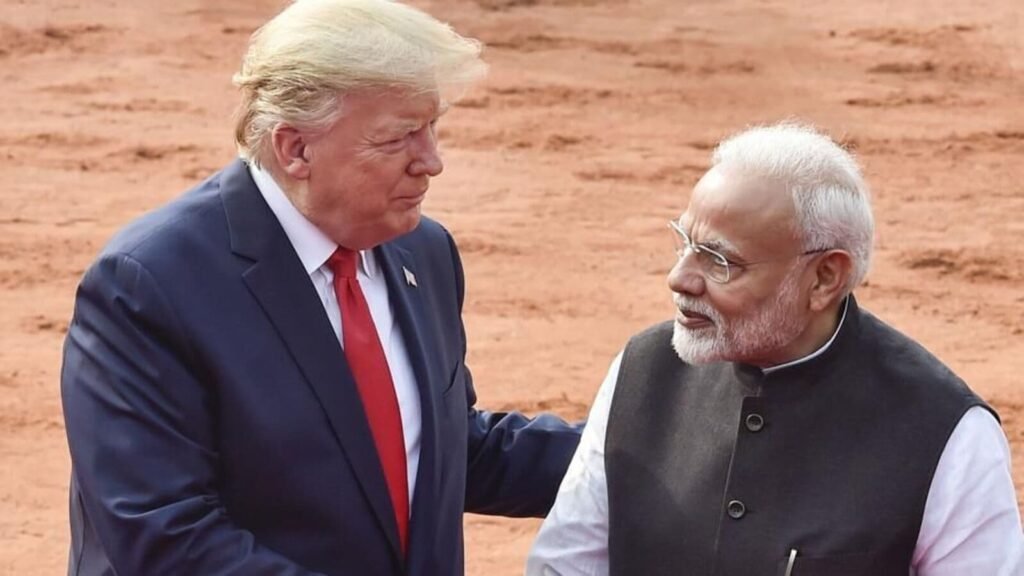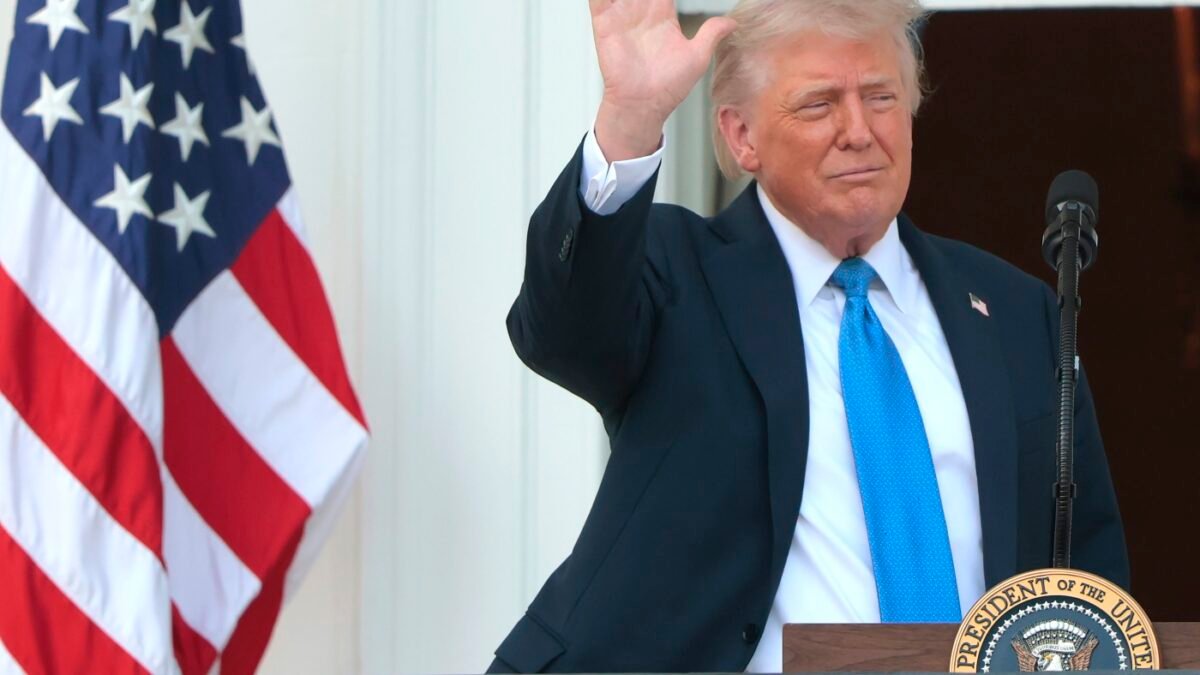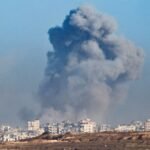Now Reading: Trump Signs Travel Ban on 12 Countries: Live Updates and Reaction
-
01
Trump Signs Travel Ban on 12 Countries: Live Updates and Reaction
Trump Signs Travel Ban on 12 Countries: Live Updates and Reaction

In recent years, people in Myanmar have endured a military coup, civil war, enforced conscription, aerial bombardment and a devastating earthquake. A new hardship landed Thursday morning, as President Trump ordered a sweeping travel ban that included the citizens of Myanmar.
The action is an effort to stop immigration from nations that Mr. Trump deemed to have a “large-scale presence of terrorists,” among other concerns. The travel ban, announced by the president on Wednesday night in Washington, is set to take effect on Monday. It applies to the people of Afghanistan, Myanmar, Chad, the Republic of Congo, Equatorial Guinea, Eritrea, Haiti, Iran, Libya, Somalia, Sudan and Yemen.
Many of these countries have been wracked by conflict, while others are ruled by repressive regimes. In both cases, Mr. Trump’s proclamation closes the door on those hoping to flee to the United States to build new lives.
Citizens of seven other countries — Burundi, Cuba, Laos, Sierra Leone, Togo, Turkmenistan and Venezuela — will be barred from entering the United States on tourist and student visas. They also will not be able to settle permanently in the U.S.
“We will not allow people to enter our country who wish to do us harm,” Mr. Trump said in a message on social media.
“As soon as I woke up, bad news was already waiting for me,” said Ko Min Nwe, a 35-year-old accountant in Myanmar who last month won a U.S. immigration lottery that put him on the path for a green card next year. “Being a Myanmar citizen means that wherever we go, we face discrimination and now, even this rare stroke of luck feels like it’s been stolen from me.”
Mr. Trump said that his new travel restrictions also apply to countries that do not have proper ways to vet travelers to the United States, that have a track record of citizens who overstay their American visas and that have not easily accepted back their nationals. But the restrictions overwhelmingly target nations with vulnerable populations eager for sanctuary in the U.S.
“This policy is not about national security — it is about sowing division and vilifying communities that are seeking safety and opportunity in the United States,” said Abby Maxman, the president of Oxfam America, the charity dedicated to fighting global inequality and poverty.
The ban provides for certain exceptions. For instance, Afghans can still apply for special visas designed to safeguard those who worked for the U.S. government or military as translators and other assistants before the American withdrawal in 2021. Legal permanent residents of the United States are exempt from the order. So are athletes and their entourages visiting for major sporting events. Adoptions from the restricted nations will be allowed.
During his first term, Mr. Trump imposed a series of travel bans on mostly Muslim-majority nations, some of which were countered by the courts. Former President Joseph R. Biden Jr. revoked the immigration restrictions when he took office, calling them “a stain on our national conscience.”
Hashmat, an Afghan journalist, said he had been granted a visa to go to the United States, after enduring a month in a Taliban prison for his reporting. He is now in hiding. The new travel ban, which appears to apply to the type of visa he received, has left him with no hope, said Mr. Hashmat, who goes by only one name.
“I devoted 14 years of my life working with respected media outlets to promote democracy, freedom of speech and global values — values I believed the U.S. shared,” he said. “Today, I suffer because of those very values.”
Some of the countries affected by Mr. Trump’s latest travel order reacted quickly, vowing to tackle problems. Somalia, according to Mr. Trump’s proclamation, was targeted because it lacks a central authority that can properly screen travelers and it is a “terrorist safe haven.”
“Somalia values its longstanding relationship with the United States and stands ready to engage in dialogue to address the concerns raised,” Dahir Hassan Abdi, the Somali ambassador to the U.S., said in a statement.
Myanmar erupted into full-blown civil war four years ago, following a military coup that ousted an elected government. Criminal networks in the country’s poorly governed borderlands have filled war chests and flooded the world with synthetic drugs, cyberscams and dubiously sourced minerals. Still, there is scant evidence that Myanmar is exporting terrorism, much less to the United States.
Most immigrants from Myanmar arrived in the United States as refugees escaping persecution. Waves of immigration to the United States by Myanmar nationals have followed moments of political turmoil, such as crackdowns on democracy movements in 1988 and 2007.
More recently, more than 3.5 million people in Myanmar, out of a population of about 55 million, have been uprooted from their homes because of the civil war. Millions more have sought shelter abroad, mostly in neighboring Thailand and Bangladesh.
Starting last July, a resettlement initiative brought Myanmar refugees living in camps in Thailand to the United States. But that program has effectively stopped since Mr. Trump’s second inauguration. American aid for Myanmar refugees in Thailand and Bangladesh has been slashed, too; without access to medical care, babies and elderly patients have died, doctors say.
From 2005 to 2015, about 100,000 refugees from camps in Thailand were resettled overseas, mostly in the United States, according to the U.N. refugee agency.
Myanmar is now a fractured nation. Most of the heartland of the country is controlled by the military junta, while ethnic armed groups and pro-democracy forces have carved out territory in the vast outer areas. Airstrikes by the Myanmar military have destroyed hundreds of villages. Thousands of people have been imprisoned and tortured for daring to oppose the military junta and call for democracy.
Since the coup in 2021, the United States has imposed sanctions on top junta officials and the business cronies who prop them up. But some critics say Washington’s actions don’t have enough bite.
Ma Mya Thiri Lwin, 24, was accepted at a college in Minnesota to study computer science beginning in August. As part of a large student-led boycott of government institutions, she had not attended university in Myanmar. Now, she said, her dreams of one day working in Silicon Valley have withered.
“It feels like Myanmar is cursed,” she said, learning that Mr. Trump’s travel ban included her homeland. “Even the U.S., which claims to be a stronghold of human rights, has turned a blind eye to people like us who are poor, oppressed and at risk.”
Safiullah Padshah and Mike Ives contributed reporting.


















































